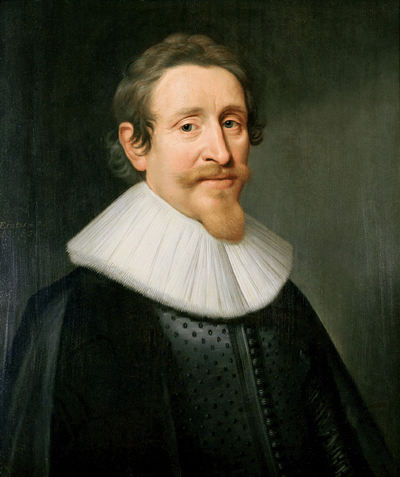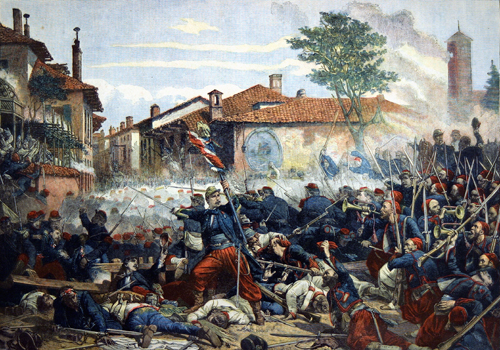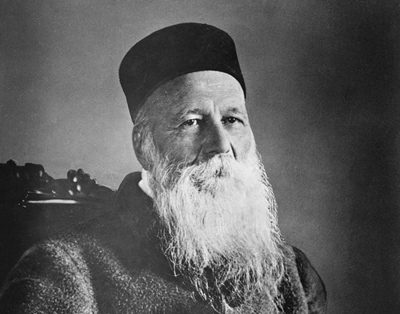
Your complimentary articles
You’ve read one of your four complimentary articles for this month.
You can read four articles free per month. To have complete access to the thousands of philosophy articles on this site, please
War & Philosophy
The Philosophy of War
Ziyad Hayatli presents a condensed history of the philosophy of war.
A term such as ‘the laws of war’ seems oxymoronic in nature: a contradiction in terms. On the one hand, law is a rigid structure of rules that’s associated with order; on the other hand, war is an activity characterised by chaos and destruction. Yet there is now an understanding that when one goes to war, certain behaviours are expected, and when these standards are violated, demands for international justice are broadcast on the air, written in the papers, and shouted through the megaphones. Institutions such as the United Nations are chided as toothless, useless due to their limitations. The International Criminal Court is caught up in the debates about the laws and lawfulness of war, and they are numerous, concerning drone warfare, artificial intelligence, collateral damage, winning hearts and minds, chemical and biological weapons, the need for nuclear deterrence, and the very idea of humanitarian military intervention.
This article will look at the whys and wherefores of the laws of war from a philosophical perspective, beginning with the natural law theories of the Middle Ages, to which we owe a substantial just war doctrine, and moving onto the Enlightenment, during which new conceptions of state and sovereignty would change the idea of war. There are two considerations I’d like you to keep in mind: firstly, that wars and their consequences tend to change the international order of things; secondly, that ideas about the nature of war are closely tied to conceptions of what a state is, and how states relate to one another.
Laws As Natural
Back in the Middle Ages, Western philosophy generally assumed that morality was an inherent characteristic of mankind as a gift from God. Laws built upon this inherent morality were known as Natural Laws. In regards to the laws of war, scholastics and theologians from Thomas Aquinas (1225-1274) to Hugo Grotius (1583-1645) developed a substantial doctrine of ‘Just War Theory’ – a theory of when waging war was just, and when it was unjust (‘jus ad bellum’), as well as what sort of behaviour was just within war (‘jus in bello’).

Hugo Grotius by Mierevel 1631
Hugo Grotius published his seminal work De Jure Belli ac Pacis (The Law of War and Peace) in 1629. For Europe, this was a time of upheaval known as the Thirty Years’ War, in which Catholic and Protestant states were warring against one another. In this work Grotius described the political order as a loose international society. He also explored the basic idea of self defence as a lawful use of force, on both the private and the state level. His insights earned him the title ‘the father of international law’. Most importantly, Grotius made recommendations which showed a remarkable amount of tolerance, given the political climate. One was that war waged against others just because of their different interpretation of Christianity is unjust. The end of the Thirty Years’ War in 1648 saw the adoption of this and other recommendations in what became known as the Peace of Westphalia, by which much of Europe was transformed from a group of hierarchical states vertically aligned under Pope and Emperor, to horizontally arranged equal sovereign states. This also changed the nature of wars in Europe. They became what some called ‘secularised’.
Laws As Self-Interest
Just three years later, in 1651, the English philosopher Thomas Hobbes published Leviathan. For a time this cemented how war, and morality as a whole, was conceived.
The basic premise of Leviathan is that, as a matter of survival and for the sake of cohesion, the members of a society give up certain liberties to a sovereign, who becomes responsible for applying laws and protecting private property. The ideas of morality and the laws built upon them in this case reflected social interests, especially in determining the strength and scope of the power of the sovereign towards his subjects. God and natural law did not factor into this view. Although Hobbes did not deny its existence, he believed that natural law was not what kept people in line. As he wrote:
“For the laws of nature, as justice, equity, modesty, mercy and, in sum, doing to others as we would be done to, of themselves, without the terror of some power, to cause them to be observed, are contrary to our natural passions, that carry us to partiality, pride, revenge and the like. And covenants without the sword are but words, and of no strength to secure a man at all.” (Part 2, Chapter 17, ‘Of Commonwealth’).
This arguably applies not only to agreements between private citizens, but also to the international order of states. There the ‘fear of the sword’ is maintained by a balance of power – what prevents states from going to war is fear of consequences, economic, political, and social. Conversely, by Hobbes’ logic, if one sovereign state determines that going to war against another is to its own best interest, then a war is justified for that state.
The cynics among us may point out that this has always been the case. During the time of the Thirty Years’ War, for instance, there was much political self-interest in the waging of wars, despite the superficial religious justification. Nevertheless, Hobbes made the ‘self-interest’ aspect more explicit, and presented an alternative view to Grotius’s vision of a naturally formed ‘international society’. It’s hardly surprising then that while Grotius is considered the father of international law, Hobbes is considered the father of the ‘realist’ school of thought in international relations. [For more on Hobbes, see ‘Brief Lives’ in this issue, Ed.]
The natural law to which Hobbes refers in the quotation above, of ‘doing to others as we would be done to’, is of particular significance. For the loose international society Grotius described receives what cohesion it has from that principle, which is known as ‘reciprocity’ in the international legal field. The time-honoured tradition of respecting another state’s ambassadors and envoys, even if it is a hostile power, is a legacy of this. On the other hand, Hobbes’ view that a fear of the sword and balance of power is a driving force for political behaviour also holds true. Given the delicate nature of this balance, and that the interests of a state are subject to interpretation by its rulers, then wars are an inescapable phenomenon.

The Battle of Solferino, 1859
The Birth of the Red Cross
Regardless of the legitimacy or otherwise of any given war (jus ad bellum), there is a separate question of legitimate conduct within war (jus in bello). It was this latter question that a Swiss businessman called Henry Dunant asked after he witnessed first-hand the horrors of war at the Battle of Solferino in 1859.
The Battle of Solferino was waged between the Austrian Empire and Franco-Piedmontese forces in northern Italy. It was described as a battle fought with “disastrous short-sightedness, improvisation and negligence.” It led to 6,000 dead and approximately 40,000 wounded after the two armies clashed amid a hail of artillery. The medical services on both sides were overwhelmed, and the negligence of the supply corps was exposed as the medical service’s transport was requisitioned to transport ammunition instead. Although the fighting lasted fifteen hours, it took six days to remove ten thousand wounded, most of whom were carried by peasants’ carts to nearby villages with the hope of getting a little food and water.

Henry Dunant
Henry Dunant arrived in the nearby village of Castiglione on 24th June 1859, originally with hopes of gaining an audience with Napoleon III. He met instead a flood of suffering that was not being stemmed; and so took it upon himself to mobilize volunteers – mostly local women and girls – to provide whatever care they could. He sent his coachman to buy much needed supplies from Brescia, such as cloth and material for dressings. He also encouraged volunteers to show the same level of sympathy and care for wounded enemy Austrians, and arranged for the release of Austrian doctors so that they could also tend the wounded. What he witnessed in the next two weeks was published in his account, A Memory of Solferino. This account and subsequent work by Dunant led to the formation of the International Committee of the Red Cross in 1863.
Philosophically, Dunant’s book questions how a state could be so negligent towards its own soldiers once they are of ‘no use’, and argues for the importance of principles when fighting wars. It also emphasised the idea of preventing needless suffering. To Henry Dunant, a combatant was an agent of the state, fulfilling a duty delegated by that state, and when that combatant is wounded to the point that they’re no longer able to fulfil that duty, they cease to become such agents. There is no further point in killing, maiming, or torturing them. While war may be unpreventable, the suffering therein can and should be constrained.
This way of thinking informs the principle of distinction, whereby military targets must be distinguished from non-targets. This rule was already present in Christian and Islamic traditions, such as in the tenth century Peace of God Movement in France, the St. Petersburg Declaration, and Islamic Sunni rulings in general (see H. Shue, ‘Laws of War’ in The Philosophy of International Law, S. Besson & J. Tasioulas (eds), 2010). However, the ICRC reinvigorated and promulgated the distinction between military and non-military in a more modern and global context. Now, the ICRC considers it as a core principle.
This philosophy of war views the state as an intangible entity composed of agents who fulfil its interests at every level, from soldiers to civil servants and law-makers. Given that the concept of the state has been closely linked with philosophies of war (both ad bellum and in bello), the second half of the Twentieth Century would bring about fresh challenges.
The Twentieth Century and Beyond: New Challenges
Just as the Thirty Years’ War changed the European order, so the Second World War changed the world order. Grotius’s idea of a loose international society really came to fruition with the subsequent creation of the United Nations in 1945. And just as societies always do, a global community of states sought to make certain behaviours taboo. Wars of aggression and expansionism became unacceptable. Officially, war became permissible in only two circumstances: self-defence, or by a binding resolution from the Security Council. Chapter VII of The United Nations Charter in its entirety, and particularly Article 51, makes this point very clearly. But the so-called ‘global society of states’ has found loopholes. And the new world of decolonisation, national liberation, human rights treaties, and sovereign state self-determination introduced a new kind of entity onto the international field – ‘territorial non-state actors’. These were organisations that closely resembled states, but were not quite states. They’re perfect vessels for states to engage in proxy warfare, where neither side directly engages the other. Now arguing for humanitarian intervention became the new tactic.
For a long time the concept of warfare had been closely wedded to the concept of the state, but no more as territorial non-state actors became a significant part of the world of war. Terms such as ‘terrorism’ and ‘freedom fighter’ entered everyone’s lexicon. And no discussion of war is complete without mentioning the ‘War on Terror’. The challenge of developing a new philosophy where combatants include not only the functionary of states but also terrorists or freedom fighters is very real. The late international legal scholar Antonio Cassese called this the ‘Freedom Fighter’s Problem’ (see his International Criminal Law, 2013, 3rd ed., especially Ch. 8 on terrorism). Are terrorists, or ‘combatants of a non-state actor’, different to the soldiers of a conventional army? If so, how and why? Do we restrict human rights in the face of such an enemy, for the sake of national security? Or would the reduction of human rights have a worsening effect? These are the debates we are having today. Cassese himself explored how the word ‘terrorism’ is sometimes used in a manipulative way that merely reflects a state’s interests. This is not to say that terrorism is not a real threat or a genuine phenomenon, however.
The conflict in Syria is emblematic of this new world of war. It has truly tested the morality of combatants, observers, and political commentators. Accusations of human rights abuses, child conscription, and war by proxy fly around left and right. On the one hand there is a despotic, merciless tyrant; on the other rebels, some of whom have highly questionable beliefs and patrons. The tyrant stands up to global imperialism and proxy warfare from the ‘hypocritical West’; yet the rebels stand up to ‘tyranny’ and ‘despotism’.
Conclusion
Philosophers of war and of the rules of war ultimately divide into two schools of thought. One is represented by the pragmatic optimist Grotius, who believed in a loose global society and reciprocity; the other by the more cynical ‘realist’, Hobbes, who believed that the pragmatism of self-interest leads to the fear of the sword and the balance of power. The justifications which a person accepts for going to war – and for particular actions within a war – will depend on their other convictions and disposition.
Although, to put it mildly, not every soldier or politician in history has observed the laws of war, we can recognize that these laws have formed over time either for the interest of states or because there genuinely is an international society with some sort of conscience. Such laws and agreements as are found in documents like the Geneva Convention are therefore a legal heritage for the world. It can be hoped that we are able to face the philosophical challenge of new concepts of war without utterly desecrating this heritage.
© Ziyad Hayatli 2018
Ziyad Hayatli has a BA in Philosophy & Journalism, and an LLM Masters in International Law. He has worked for Amnesty International as a research assistant and Arabic interpreter.
The Rules of Just War Theory
Jus ad bellum
These are the rules for when it is just to go to war.
(1) Does the war have Just Authority (Auctoritas)?
(2) Does the war have Just Cause (Causa)?
(3) Is the war being started with the Right Intentions (Intentio)?
(4) Is the proposed military action proportional to the situation?
(5) Is there a good probability of success in achieving the war’s aim?
(6) Peaceful alternatives must all have been exhausted first.
Jus in bello
These are the rules guiding behaviour once a war has started.
(1) Discrimination: no violence towards civilians, or combatants who have surrendered.
(2) Proportionality: harm to lives or property must not be disproportionate to the military advantage expected to be gained.
(3) Responsibility: Every individual, regardless of rank, is personally responsible for any war crime that he might commit. Soldiers must refuse to obey any orders that they know to be immoral.
(4) No use of certain unacceptable weapons and tactics (e.g. rape, or forcing captives to fight their own side, or biological weapons).









